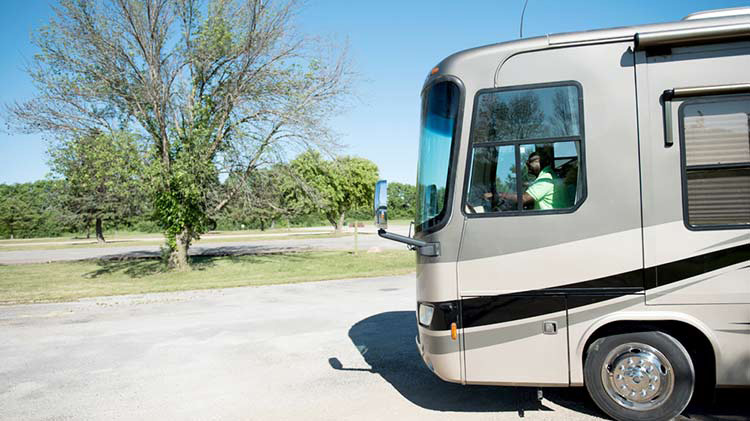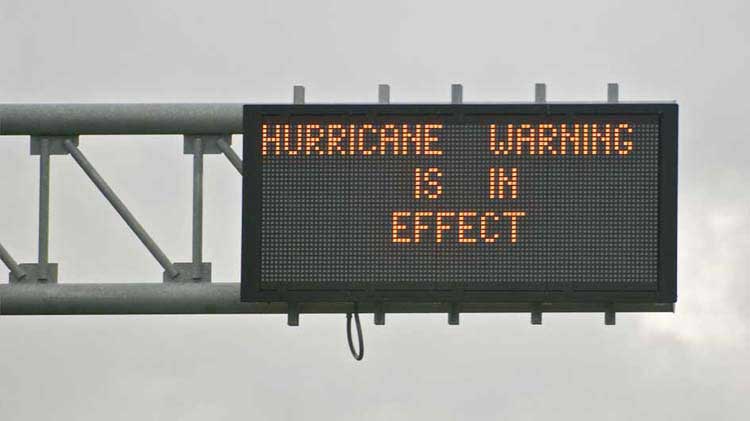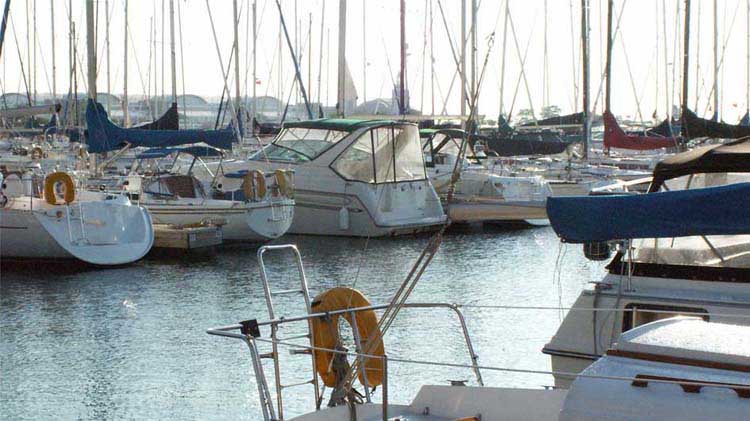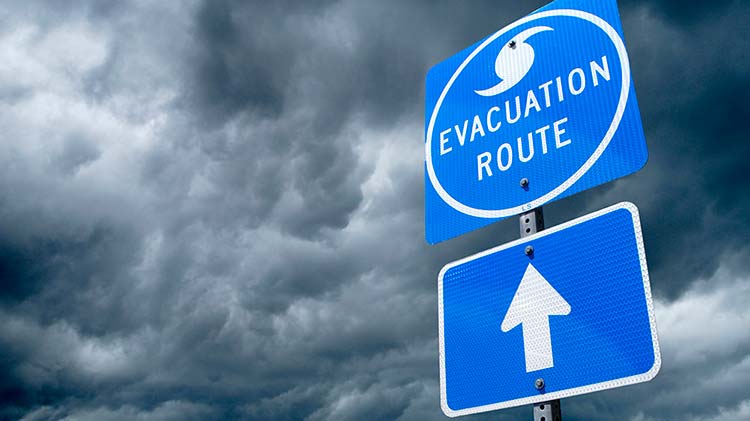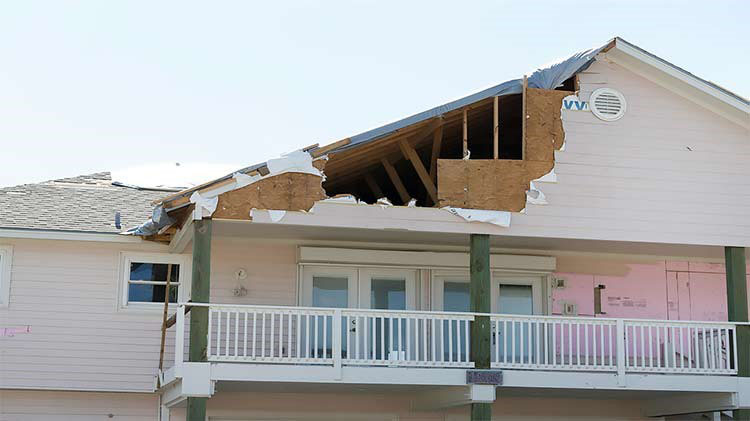How to prepare an RV for a hurricane
Learn some hurricane preparedness tips to help get your RV ready – from evacuating with the RV to leaving it behind. A few simple steps may help keep you, your family and your RV safe during a hurricane or high winds.
Before you travel
Have your emergency plans in place and be prepared for the unexpected before you hit the road.
- Make a family storm preparation plan.
- Create a hurricane evacuation plan.
- Test your generator before you leave, making sure it is in good working order and you have plenty of gas for it.
- See that your RV's gas tank is full — in case you need to evacuate.
Have an agent contact me with a quote
Prepare the inside of your RV
Know what you have inside your RV and how to keep important things safe if a storm hits.
- Seal all important documents in waterproof bags or containers.
- Shut all doors and windows to help prevent water and wind from getting inside.
- Make an emergency kit.
- Create an inventory of everything in your RV.
- Keep some extra batteries, duct tape, garbage bags, phone chargers and tools in your RV.
If you need to evacuate
Secure items inside and out, and follow evacuation orders.
Evacuating with the RV
- If authorities order an evacuation, always follow the instructions.
- Avoid driving through water.
- Plan an evacuation route that avoids the expected path of the hurricane.
- Consider making reservations for campgrounds as soon as you decide where you will be staying. Many people may be evacuating at the same time and campground sites might fill up quickly.
- It’s difficult to know in advance for how long you might be staying away. Consider packing and stocking your RV with necessities for several days, in case you are unable to come home right after the storm has passed.
Leaving your RV behind during an evacuation
Try to find a safe spot to park your RV and know how to protect it in the event of high winds or a hurricane.
- If possible, put your RV in an enclosed storage facility or try to park it next to a building (the opposite side from where the wind is coming).
- If you're at a campsite or out in the open, choose an elevated site away from large trees and point the end of the RV that has the least number of windows into the wind.
- If you can do so safely, remove any loose branches or items nearby to help prevent them from blowing into your RV.
- Empty the holding tanks and then fill them and all other tanks with fresh water to help add weight for holding down the RV.
- Turn off propane cylinders and cover the regulator.
- Cover the vents and air conditioning unit.
- Secure inside items in boxes or cupboards.
- Know where the transfer switch for the generator is located so you can isolate electricity from the rest of the power grid and help prevent electrical shocks.
- To help avoid leaks during a hurricane or other inclement weather, ensure the entire RV, including the roof, is maintained throughout the year according to manufacturer guidelines. In case of a category 1 or 2 hurricane, a tarp made specifically for your RV may be a good cover to help prevent leaks.
- Also bring in the water and electrical cords so they do not get damaged.
How to anchor an RV for high winds or a hurricane
Here are some helpful tips:
- Different ways to secure an RV include anchor kits, ground anchors or sandbags. If your RV doesn't have stabilizing jacks that might be used for anchoring, there are other options available for purchase.
- Tie down travel trailers.
- Remember to remove all awnings and store them in the RV or another safe place. If you are unable to remove them, retract and secure them.
- Consider installing hurricane window clips, which allow you to easily board up your windows by sliding plywood into the clips.
- And don't forget to secure all items outside your RV like lawn chairs, tables, yard ornaments, grills or toys. If appropriate, bring them inside the RV and secure them.
Hurricanes and high winds can be scary, but planning ahead may help you weather the storm. Check with your State Farm® agent that your insurance coverage for the RV is up to date.
